News
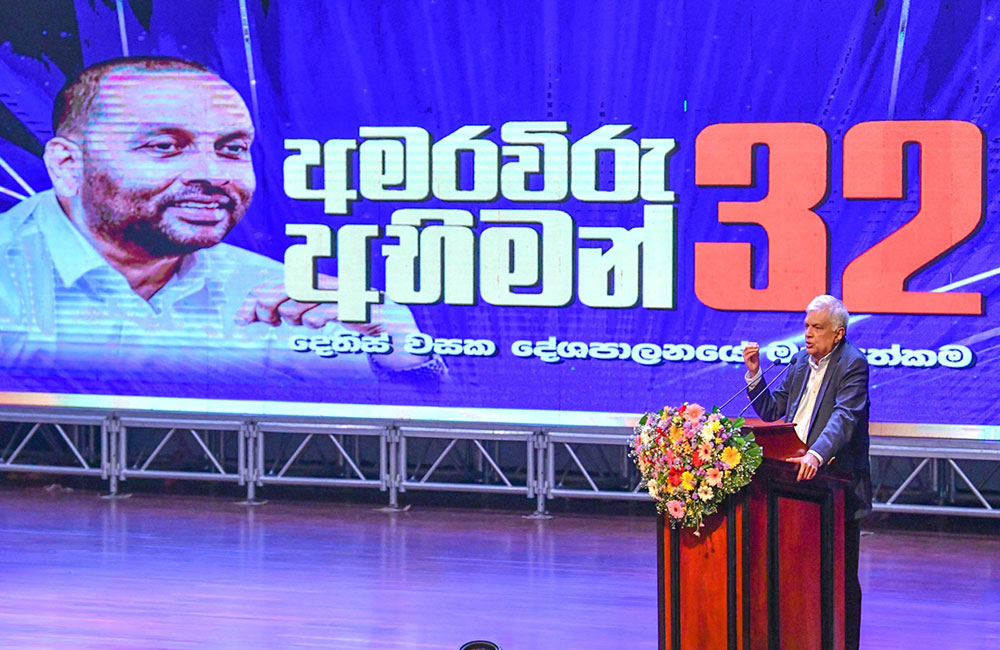
President urges opposition to prioritise national interest over politics
President Ranil Wickremesinghe emphasized the importance of avoiding misleading arguments and instead urged the entire opposition, led by the opposition leader, to join the government in addressing the country’s challenges, the President’s Media Division (PMD) reported.
He pointed out that the opposition’s allegations regarding the restructuring of local debt have been proven false.
The President encouraged the opposition to participate in the next presidential election and contribute to rebuilding the country by fulfilling their responsibilities to the people. He also expressed his willingness to assign additional duties to the opposition in consultation with the Speaker, if necessary, the PMD said.
These remarks were made by President Ranil Wickremesinghe at the “Amarawiru Abhiman 32” ceremony, which honoured Mahinda Amaraweera, the Minister of Agriculture, for his 32-year political career.
During the event, the President received a special commemorative edition of “Amaraviru Abhiman 32” and presented commemorative gifts to farmers, agriculture supporters, and students who achieved academic success in the Hambantota district.
Minister Mahinda Amaraweera presented a memento to President Ranil Wickremesinghe as a tribute to the people of Hambantota, and the President reciprocated by presenting a souvenir to Minister Amaraweera in appreciation of his dedicated service to the people of the district, according to the PMD.
President Ranil Wickremesinghe further commented: “Minister Mahinda Amaraweera has rendered outstanding service to the people of the country over his 32-year political career and 28-year parliamentary career. We should appreciate him for his wisdom and extensive experience as a politician. Throughout different eras, we have worked together as members of the party and the opposition, including serving under President Maithripala Sirisena’s leadership.
In continuation, as Prime Minister of President Gotabaya Rajapaksa’s government, I announced our intention to move forward with the participation of all members. In 2022, President Gotabaya Rajapaksa invited all Parliamentary party leaders to the President’s Office. Unfortunately, the Samagi Jana Balawegaya and Janata Vimukthi Peramuna boycotted the meeting.
During that time, I, along with Mr. R. Sampanthan and Mr. Maithripala Sirisena, discussed how to resolve this issue. Despite our efforts to bring everyone together after the incident on May 9, the Samagi Jana Balawegaya did not join us, even though they were offered the opportunity to participate without assuming the post of Prime Minister. Consequently, our government was formed, and we began our duties.
I was appointed President, Mr. Dinesh Gunawardena became the Prime Minister, and Mr. Mahinda Amaraweera was entrusted with the responsibility of the Agriculture Minister. Despite the challenges faced by the agriculture sector, Mr. Amaraweera’s leadership has allowed us to make significant progress.
We initiated a program to ensure an ample harvest before the Sinhala New Year in 2023 and formed food security committees. While we invited members from both the ruling party and the opposition to participate, the opposition did not attend. When the harvest yielded an abundance of crops, the committee presidents started distributing rice to the people, which sparked outrage among opposition members who felt excluded.
Mr. Mahinda Amaraweera and the dedicated officers who worked tirelessly on these efforts deserve our gratitude. We swiftly provided fertilizer to the farms, ensuring a seamless process from the shipment to the fields. This has contributed to food security and assistance to the less privileged.
Now, our focus is on promoting agriculture in the country, particularly export-oriented agriculture. We have mainly concentrated on meeting our domestic food requirements thus far, but it is time to produce crops that the world demands. To achieve this, we have launched a large-scale agricultural modernization effort.
Additionally, we have implemented a comprehensive plan for the development of livestock resources. We have received requests from Ambewela Company, the country’s leading livestock company, to provide them the Ridigama farm. We hope to fulfill this request to further develop the livestock sector in that area.
Notably, Amul, a renowned Indian company, has collaborated with our Livestock Development Board, and we have received interest from several other firms. It is important to highlight that we do not import animals from other countries. Instead, we encourage businesses to adopt and invest in this sector, which will lead to the emergence of new industries, particularly in the dairy sector.
Expanding our agricultural efforts, we aim to export eggs and chicken as well. However, we acknowledge that we cannot achieve this alone. Therefore, the government and the business sector must collaborate to drive these initiatives forward.
All these measures are being undertaken to ensure the country’s success. We have implemented various initiatives to improve financial stability, including reaching a staff-level agreement with the International Monetary Fund last September. Budget recommendations for 2023 have been submitted to Parliament for execution.
Increasing taxes became necessary due to the circumstances we faced. I proposed that we all collectively undertake this task. However, the opposition at the time demanded to see a signed agreement and accused the government of corruption.
Despite facing obstacles and protests, we proceeded with the initiatives in January and February. Finally, in April, the International Monetary Fund’s Executive Board approved the agreement. It was a requirement to reach a debt restructuring agreement with the Paris Club, India, and China. The opposition initially claimed that China would not agree, but eventually, China consented in March.
We then aimed to present this agreement to Parliament for approval. However, the opposition did not support it. Subsequently, we had to negotiate with the creditors, which was entrusted to our officials.
During the negotiations, we emphasized the need to reduce not only foreign debt but also domestic debt. Failure to decrease domestic debt would result in a lack of funds to pay foreign debt, as we must purchase dollars in local currency. Thus, we requested a reduction in domestic debt.
The Governor of the Central Bank and my advisor suggested that this task could be accomplished without affecting bank deposits or the Employees Provident Fund. We initiated this proposition through the State Financial Committee, which summoned the necessary officials and conducted relevant inquiries. Eventually, they agreed to the suggestion.
However, when the proposal reached Parliament, it did not receive the necessary backing, as 62 MPs voted against it. The opposition raised three main arguments. First, they claimed that the Employees Provident Fund should not be touched. However, we did not touch it, and we legally safeguarded it by establishing a minimum interest rate of 9%.
Second, the opposition argued that banks, with their interest rates at 24%, should not be exempted from taxes. We explained that interest rates would decrease further in the future, and the Governor of the Central Bank projected inflation to be brought down to 9%, which would result in interest rates between 12% and 13%. If the opposition insisted on imposing taxes, we were open to considering the amount required.
The third objection focused on not increasing income tax for banks, as they claimed it would lead to increased interest rates. We clarified that if taxes were increased, banks would charge customers higher interest rates to compensate. Therefore, we requested the opposition to provide a feasible solution for this issue. However, these three arguments were ultimately rejected by the speakers.
To address concerns about the stability of bank deposits, we assured the public that their money would be safe and separate funds were in place. We rejected the opposition’s claims that the government had lied on two occasions and emphasized the importance of their support in solving the country’s issues. We also expressed willingness to engage in dialogue with the Speaker to consider assigning additional responsibilities to opposition members and involving them in advisory panels and other projects, such as establishing the Parliamentary Budget Office.”
Cabinet Ministers, led by Speaker Mahinda Yapa Abeywardena, State Ministers, Deputy Ministers, Members of Parliament, political representatives, including Southern Province Governor Mr. Willie Gamage, government officials, and a large number of people from the Hambantota district also attended this event.
Minister of Agriculture Mahinda Amaraweera stated:
“During a challenging time when nobody took responsibility for the country, current President Ranil Wickremesinghe stepped up. Some doubted that this country, where people died in queues and farmers were deprived of the fertilizer they needed, could be revived.
However, I accepted the position of Minister of Agriculture with the belief that we should all support the leader who took responsibility for the country to overcome these challenges. It is worth mentioning that the President’s policies quickly brought farmers back to the fields.
We have plans in place to provide fertilizer to the farming community as soon as possible. The necessary arrangements have been made to supply all three types of fertilizers required for the upcoming season, ensuring a good yield in all regions. Moreover, efforts to modernize agriculture are currently underway, promising a revolution in this sector in a relatively short period.
The people of this country rejected all 225 Members of Parliament a year ago, and MPs were unable to take to the streets. Unfortunately, some seem to have forgotten this. Therefore, it is crucial that everyone supports the President’s agenda to prevent a repetition of the crisis the country faced.
It should be acknowledged that the people of this country have now realized that the current President, Mr. Ranil Wickremesinghe, is the only leader capable of developing and propelling this country forward, as evidenced by the progress made within a year.”
Minister of Ports, Shipping, and Aviation Services, Nimal Siripala de Silva, remarked:
Mr. Mahinda Amaraweera has accomplished exceptional work for the people of the Hambantota district. I express my gratitude for the opportunity to congratulate him on the completion of his 32-year political career.
All of us supported the present President because we genuinely care about the country and its people. Mr. Mahinda Amaraweera was assigned the subject of agriculture, and in doing so, we contributed to restoring the country from chaos. We even sacrificed our party membership. Mahinda Amaraweera was a trailblazer, and it is essential to make the right decisions at the right time for the benefit of the country and its people.”
Cabinet Ministers, led by Speaker Mahinda Yapa Abeywardena, State Ministers, Deputy Ministers, Members of Parliament, political representatives, including Southern Province Governor Willie Gamage, government officials, and many people from the Hambantota district also participated in this event, the PMD added.
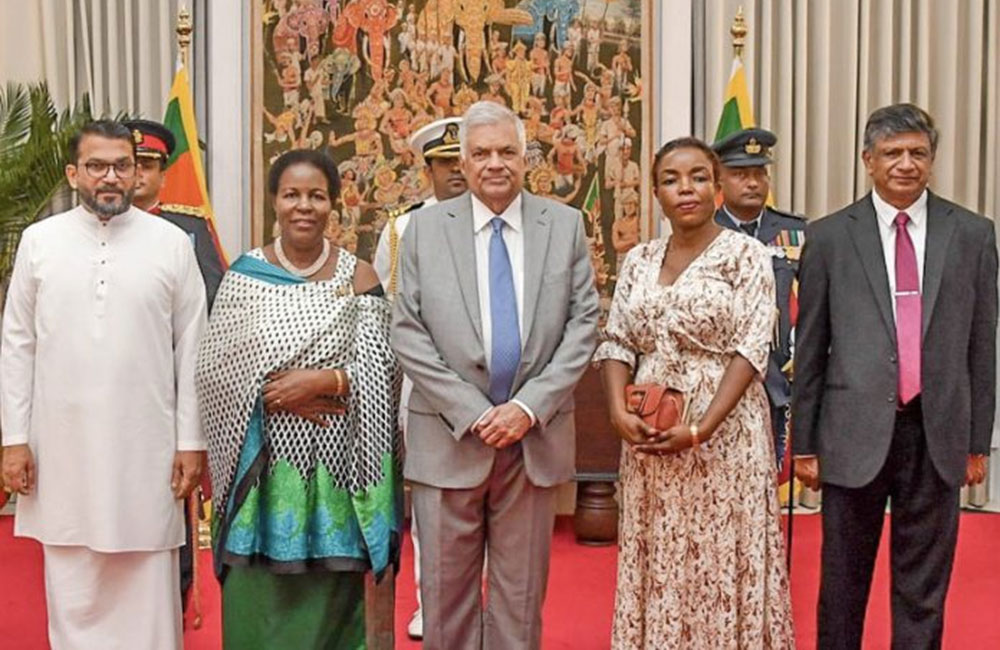
Ten newly-appointed foreign envoys present credentials to President
Three newly-appointed High Commissioners and seven Ambassadors presented their credentials to President Ranil Wickremesinghe today (June 30).
Credentials were presented during a ceremony held at the President’s House in Kandy for which a special traffic plan was also in the city.
The newly-appointed high commissioners represent the Republic of Trinidad and Tobago, the Republic of Uganda, and the Republic of Seychelles.
Meanwhile, ambassadors have been appointed to represent the Republic of Panama, the Kingdom of Belgium, the Hellenic Republic, the Syrian Arab Republic, the Republic of Peru, the Republic of Korea, and Hungary.
The newly-appointed foreign envoys are listed below:
-
Dr. Roger Gopaul High Commissioner-designate of the Republic of Trinidad and Tobago based in New Delhi
-
Mr. Eligio Alberto Salas De Leon Ambassador-designate of the Republic of Panama based in Ha Noi
-
Mr. Didier Vanderhasselt Ambassador-designate of the Kingdom of Belgium based in New Delhi
-
Prof. (Ms.) Joyce K. Kikafunda High Commissioner-designate of the Republic of Uganda based in New Delhi
-
Mr. Dimitrios Ioannou Ambassador-designate of the Hellenic Republic based in New Delhi
-
Dr. Bassam Al-Khatib Ambassador-designate of the Syrian Arab Republic based in New Delhi
-
Mr. Javier Manuel Paulinich Velarde Ambassador-designate of the Republic of Peru based in New Delhi
-
Ms. Lee Miyon Ambassador-designate of the Republic of Korea based in Colombo
-
Mr. István Szabó Ambassador-designate of Hungary based in New Delhi
10.Mrs. Lalatiana Accouche High Commissioner-designate of the Republic of Seychelles based in New Delhi
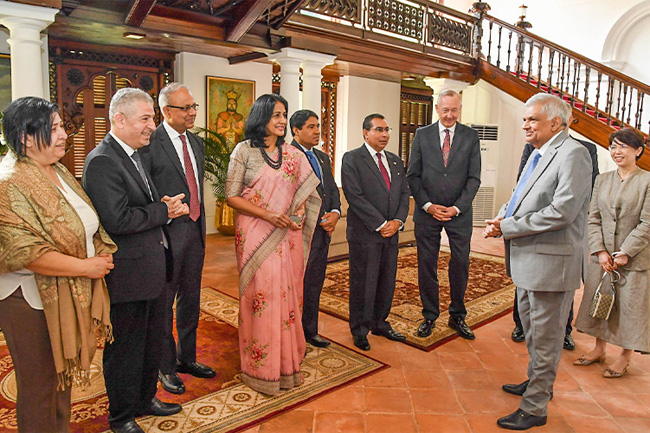

Ministry of Health to submit cabinet paper for extending retirement age of specialist doctors
The Ministry of Health has announced that a Cabinet paper proposing the extension of the retirement age for specialist doctors to 63 years will be submitted this week.
Janaka Sri Chandragupta, the Secretary of the Ministry, stated that the decision has been put forward in response to the growing number of vacancies in the medical field.
The Ministry of Health recommended the extension of the retirement age to 63 last week, and this information was also conveyed to the Court of Appeal. The Secretary of the Ministry of Health emphasized that these points were raised in relation to a petition filed by a group of specialist doctors challenging the retirement age of 60 years.
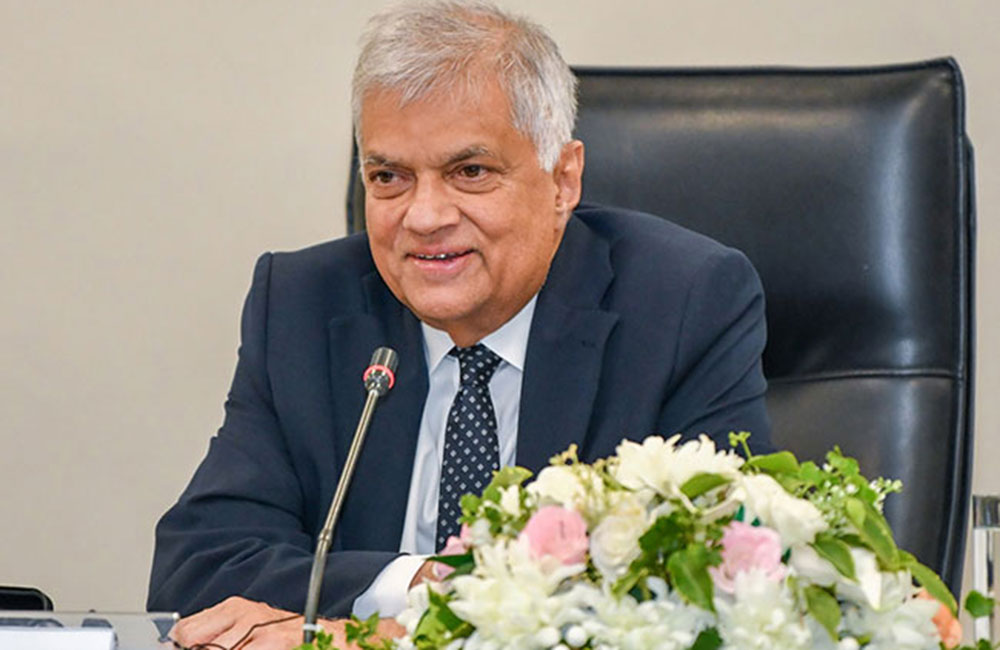
President instructs to ensure effective execution of “Aswesuma” welfare program
President Ranil Wickremesinghe has issued instructions to ensure the effective execution of the “Aswasuma” social welfare initiative, aiming to leave no one behind, the President’s Media Division (PMD) reported.
Moreover, the PMD mentioned that those who were unable to register previously for the welfare benefits scheme would be given the opportunity to do so during the month of August.
Additionally, provisions have been put in place to allow the submission of written appeals and objections until July 10, according to the PMD.
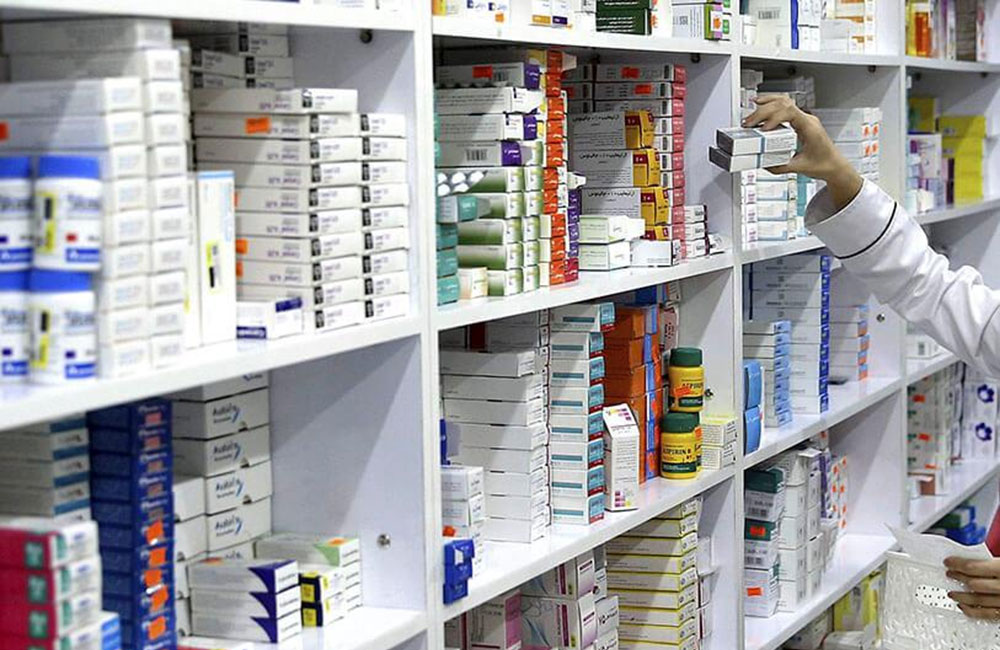
Health Minister raises concerns over shortage of drugs in central storage
Health Minister Keheliya Rambukwella has expressed concern over a shortage of 190 types of drugs in central drug storage.The minister made these remarks at the President's Media Centre.
In addition, the Minister of Health stated that efforts are underway to address the situation, and by the end of this year, the country aims to produce 20 types of medicines domestically, reducing dependence on imports.
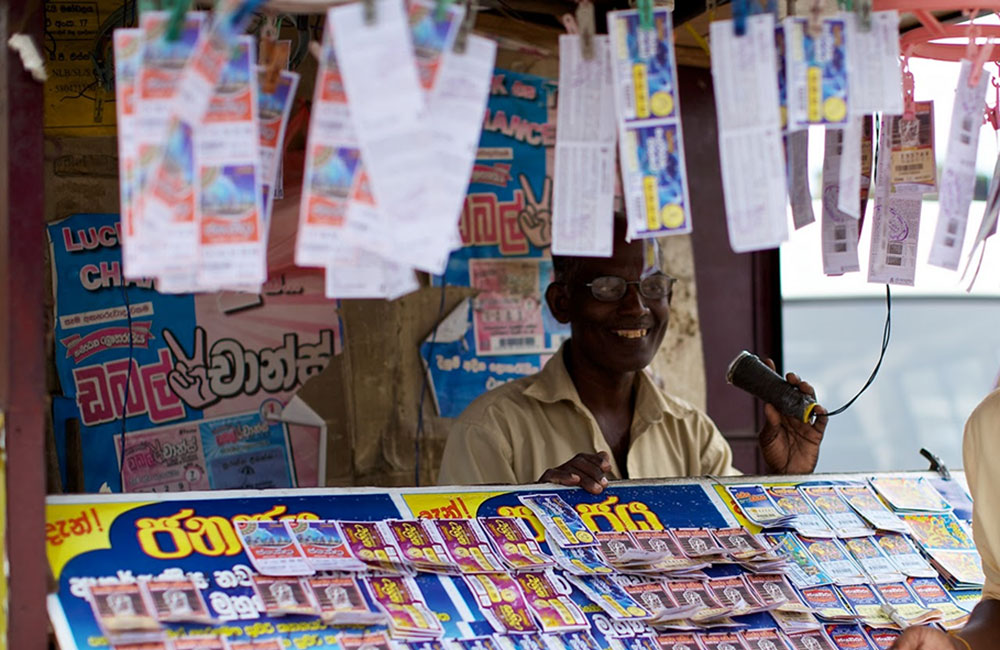
Lottery ticket prices to be increased in July
The National Lotteries Board and the Development Lotteries Board have announced an increase in lottery ticket prices.
Accordingly, the lottery prices will be increased from Rs. 20 to Rs. 40.
The price hike will be effective from July 06, 2023.
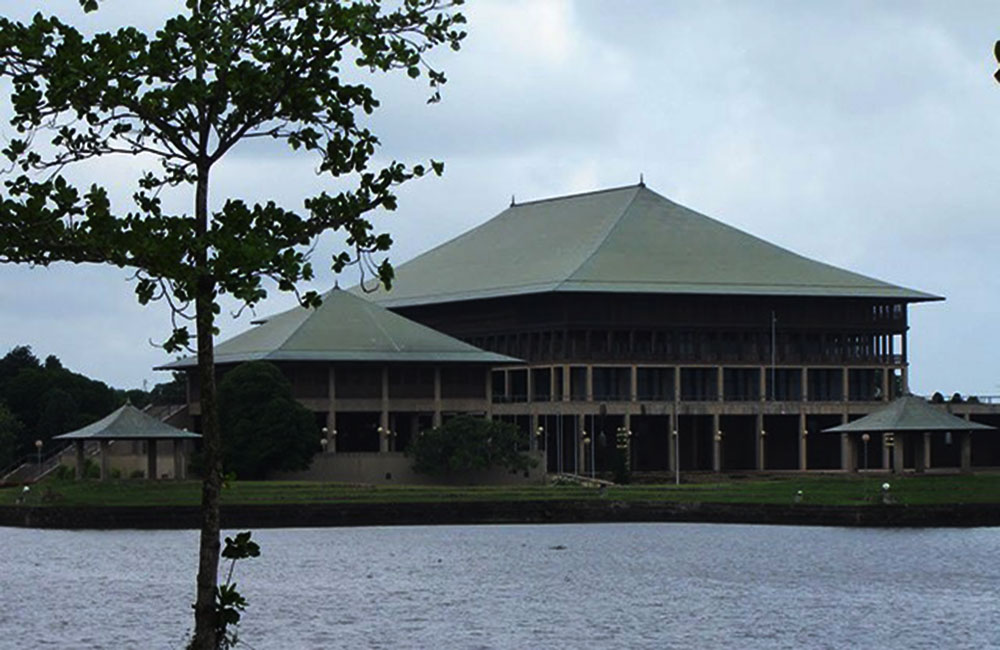
Proposed domestic debt optimization strategy passed in Parliament
The Resolution on Domestic Debt Optimization (DDO) was passed in Parliament with amendments a short while ago (01 July).
Accordingly, the DDO strategy was passed in Parliament with a majority of 60 votes, with 122 votes in favour and 62 votes against.
Meanwhile, the Secretary General of Parliament Kushani Rohanadeera has informed the Secretary to the Ministry of Finance, in writing, that the DDO strategy was passed in Parliament.
A full-day special parliamentary session took place today, during which lawmakers debated the restructuring of local debt, initially proposed in a bid to achieve debt sustainability and economic recovery.
On 28 June, the Cabinet of Ministers unanimously approved the proposed sovereign domestic debt restructuring strategy for restoring sovereign debt sustainability.
Following two days of extensive discussions on the strategy and its impact, the Committee on Public Finance (COPF), chaired by MP Dr. Harsha de Silva on 30 June, gave its approval for the proposed plan, with amendments binding the Finance Ministry to the proposed plan, ensuring adherence to the approved concept paper and addressing concerns about potential deviations.
The Governor of the Central Bank of Sri Lanka (CBSL), Secretary to the Finance Ministry and its officials, creditors including banks, superannuation funds EPF/ETF and insurance funds were invited to the COPF sessions to discuss the matter at length and to hear their views.
In response to questions on the DDO’s impact on superannuation funds EPF, ETF and the guarantee given to ensure 9% interest rates, CBSL Governor Dr. Nandalal Weerasinghe assured that their calculations indicate no net present value loss to the EPF. However, COPF chairman has advocated for legislating a minimum return, as done in the 1958 EPF Act.
Further, concerns were raised about the burden falling on the EPF, the largest superannuation fund in the country, without the consent of the depositors.
The COPF chairman, Dr. Harsha de Silva said the committee members called for balanced burden sharing among all creditors, not entirely on the superannuation funds, in order to uphold equity in the DDO.
Meanwhile, COPF members also raised concerns about the government’s commitment to the proposed plan and adherence to the principles of the resolution. Finance Ministry officials acknowledging these concerns, pledged to strengthen the Fiscal Management Responsibility Act (FMRA) for compliance.
Domestic debt restructuring is a key condition in the International Monetary Fund (IMF) program, through which a bailout package of USD 3 billion was approved for Sri Lanka in March 2023. The IMF program unlocks more help from international funding agencies. Accordingly, the World Bank, earlier this week, approved USD 700 million in financing as budgetary and welfare support for Sri Lanka.
After defaulting on its foreign debt for the time in May 2022, Sri Lanka has been working to get the economy back on track and to meet the conditions set by the IMF. Sri Lanka aims to restructure its sovereign domestic debt before the second IMF review in September 2023 as the release of second tranche of the bailout package due in October would require notable progress on debt restructuring. The island nation received the first tranche to the tune of USD 330 million in March soon after the IMF Board approved the 48-month Extended Fund Facility (EFF).
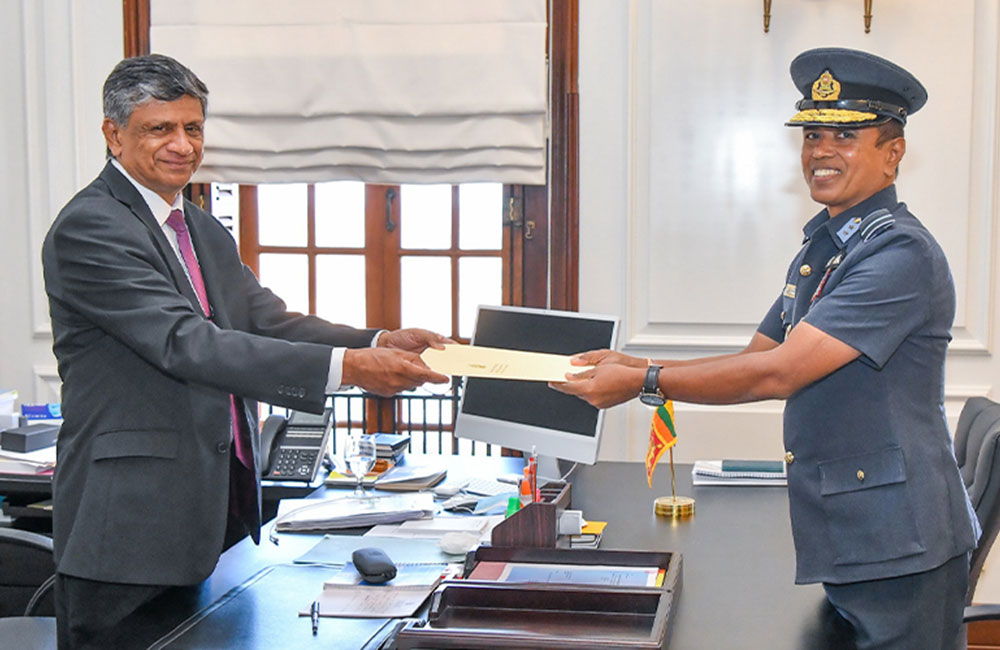
New Air Force commander appointed
Air Vice Marshal Udeni Rajapaksa has been appointed to the post of Air Force Commander.
The President’s Secretary, Mr. Saman Ekanayake, handed over the appointment letter to AVM Rajapaksa at the Presidential Secretariat yesterday (28).
In recognition of his exceptional service and in line with his new appointment as the Commander, President Ranil Wickremesinghe has promoted Air Vice Marshal Udeni Rajapaksa, to the rank of Air Marshal, effective from tomorrow, the 30th.
As the 19th Air Force Commander of the country, Air Vice Marshal Udeni Rajapaksa proudly represents his alma mater, Ananda College, Colombo, being the first Air Force Commander to be appointed from Ananda College.
His journey began in 1988 when he joined the Kotalawala Defence College as a cadet, and subsequently, he excelled in flight training at the Anuradhapura Camp No. 01, achieving the distinction of being the best cadet in the 33rd Air Cadet Course.
With a combination of local and foreign training, he demonstrated outstanding performance as a flight officer. Prior to his current appointment, he held the second position of command within the Air Force, as the Chief of Staff, and now assumes the prestigious role of Air Force Commander.
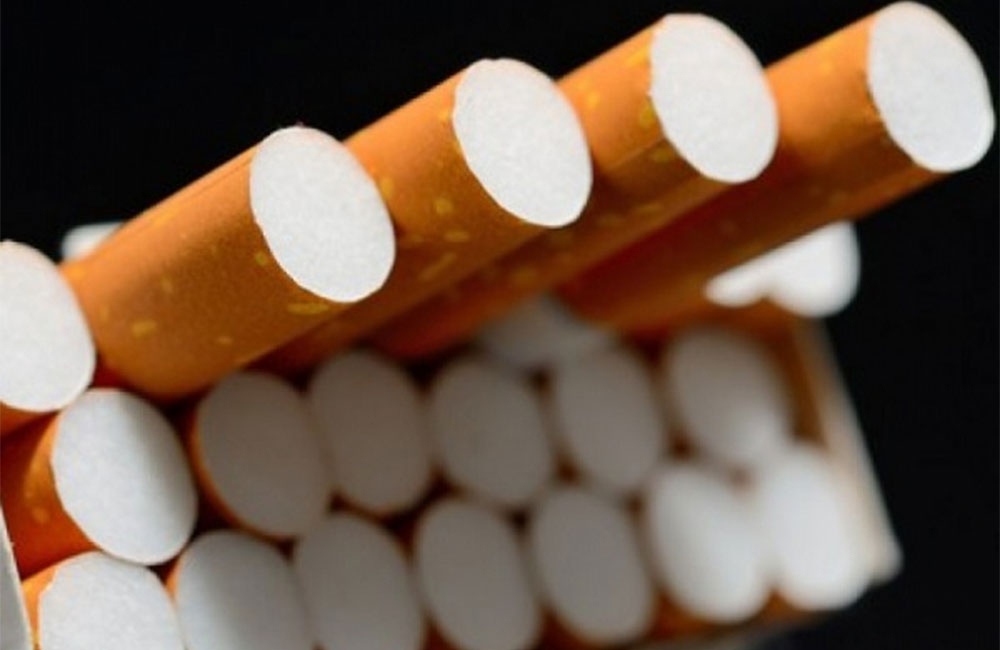
Cigarette prices increased
The prices of cigarettes have been increased under four categories following the increase in Excise Duty.
Thereby, the prices will be increased by Rs. 5, Rs. 15, Rs. 20, and Rs. 25, with effect from today (July 01).
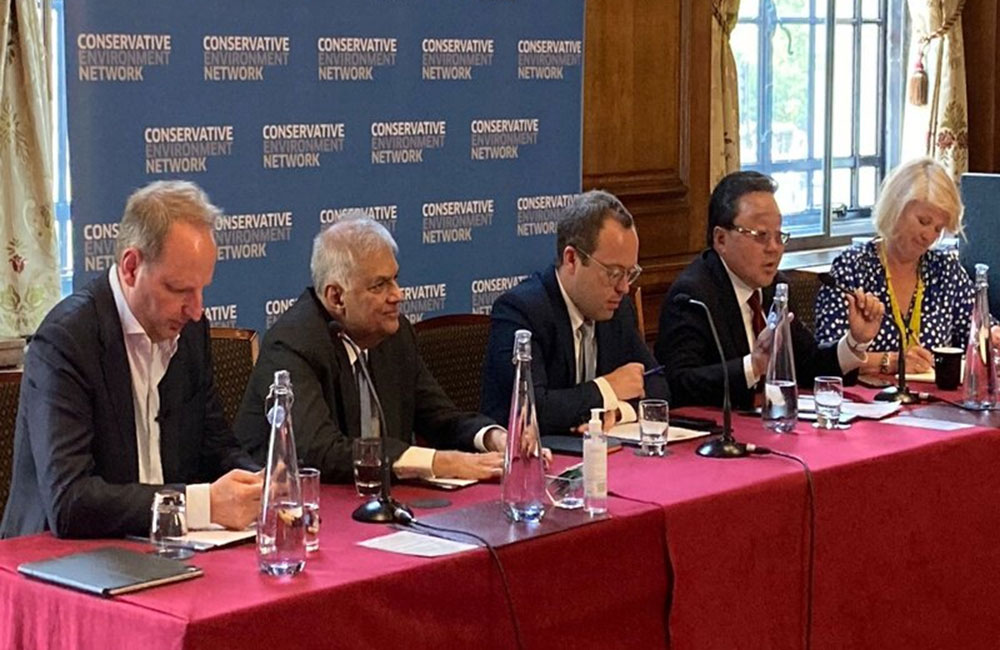
Ranil resorts to mockery avoiding questions on genocide and militarization
Sri Lankan President Ranil Wickremesinghe has come in for sharp criticism in the social media for his comment when he mocked a questioner - “if you can’t speak in English, speak in Tamil, I understand Tamil" - thereby avoiding to answer a core question from Dr. Sockalingam Yogalingam, a Tamil based in London.
He hit back saying, “I hope there are others who understand my English”.
“What is being done to stop happenings in the North, such as genocide, militarization, land grabbing, Buddhistization?," he questioned the island nation’s president.
Dr. Yogalingam representing the Transnational Government of Tamil Eelam (TGTE) raised the above question when Ranil Wickremesinghe was interacting at a meeting organized by the Conservative Environment Network in London. A few years back in Oxford too he confronted Wickremesinghe and was arrested.
Instead of answering his question, Ranil mocked him when the questioner said, “It is called a democratic Sri Lankan government, which I don’t believe in”. Immediately intervening, President Wickremesinghe said he can “understand Tamil”.
The chair of the meeting Thomas Heilmann - a member of the German Parliament Bundestag cut short Dr. Yogalingam. The meeting was also attended by Elbegdorj Tsakhia, former President of Mongolia and Vicky Ford, former UK Minister for Development.
Netizens have condemned Ranil's reaction as ‘arrogant’ and ‘unbecoming of a president’. They have also questioned ‘if Ranil can understand Tamil, why doesn’t he understand the Tamils' issues?’
A few weeks earlier, he snubbed the Director General of Archeology Anura Manathunga in a meeting saying “if he doesn’t know history he will teach him”.
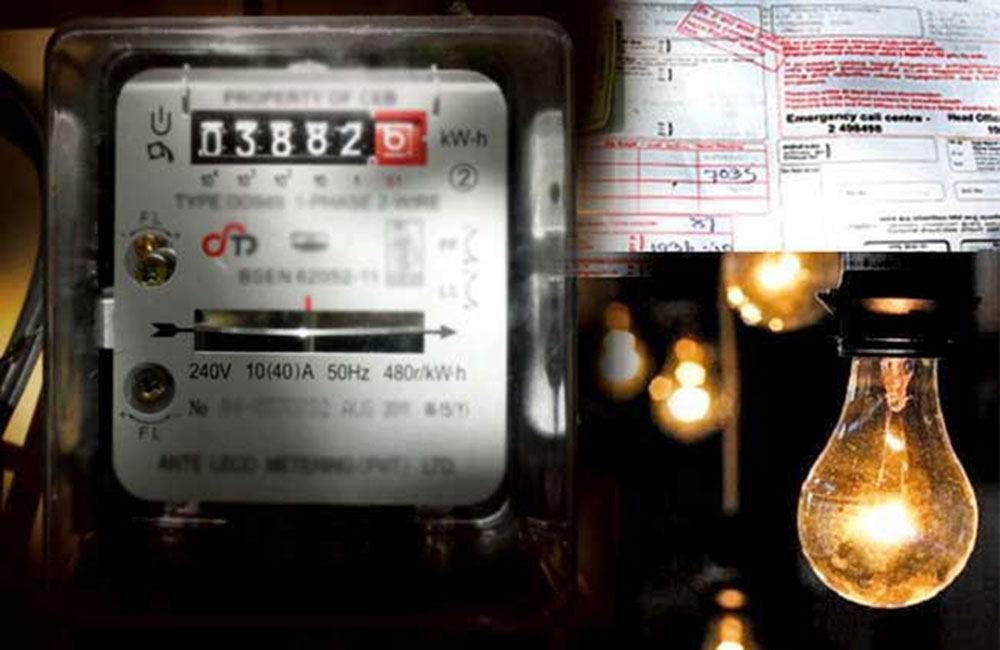
PUCSL approves CEB’s electricity tariff revision
The Public Utilities Commission of Sri Lanka (PUCSL) has approved the electricity tariff revision of the Ceylon Electricity Board (CEB) with effect from tomorrow (July 01).
Accordingly, the electricity tariffs in the domestic category using less than 30 units will be reduced by 65%, while the unit price will be slashed by Rs.10.

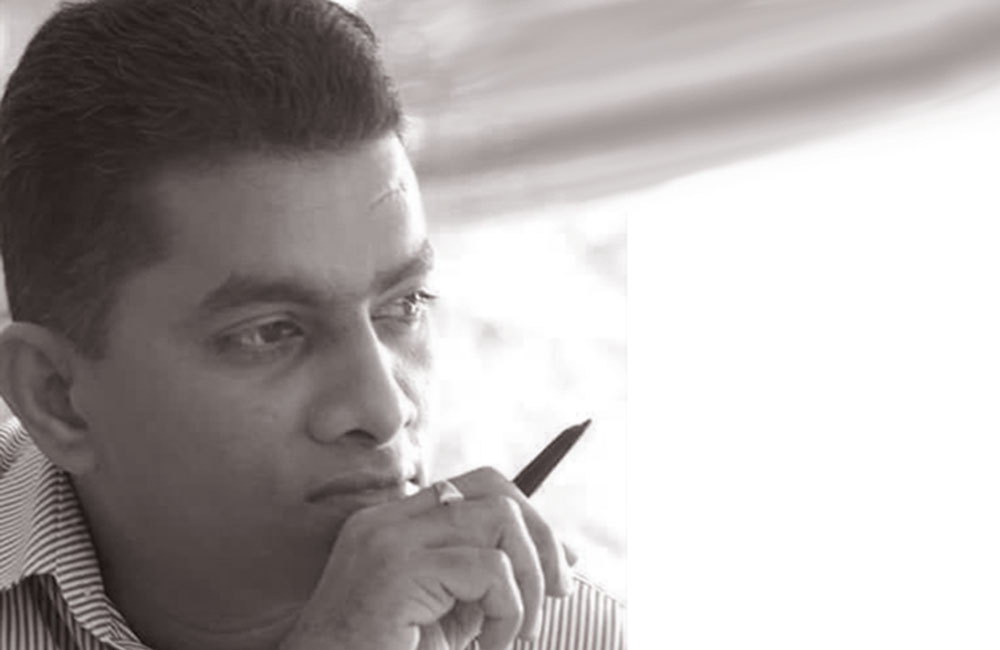
Award-winning writer & director Gaya Ramya Alwis passes away
Award-winning writer and teledrama director Gaya Ramya Alwis has died, aged 52.
Alwis, who worked as a senior producer at Sri Lanka Rupavahini Corporation, had been admitted to Ragama Hospital due to illness, where he breathed his last.
He was the youngest son of renowned songwriter Dalton Alwis.
Page 243 of 663